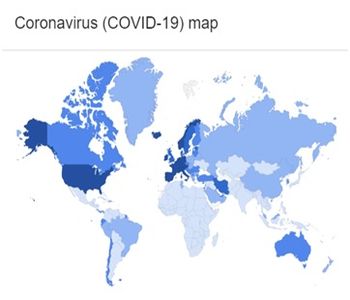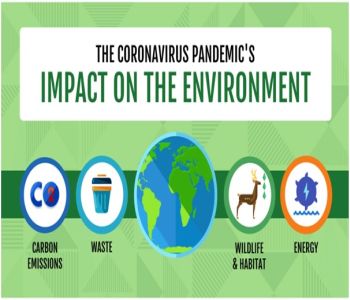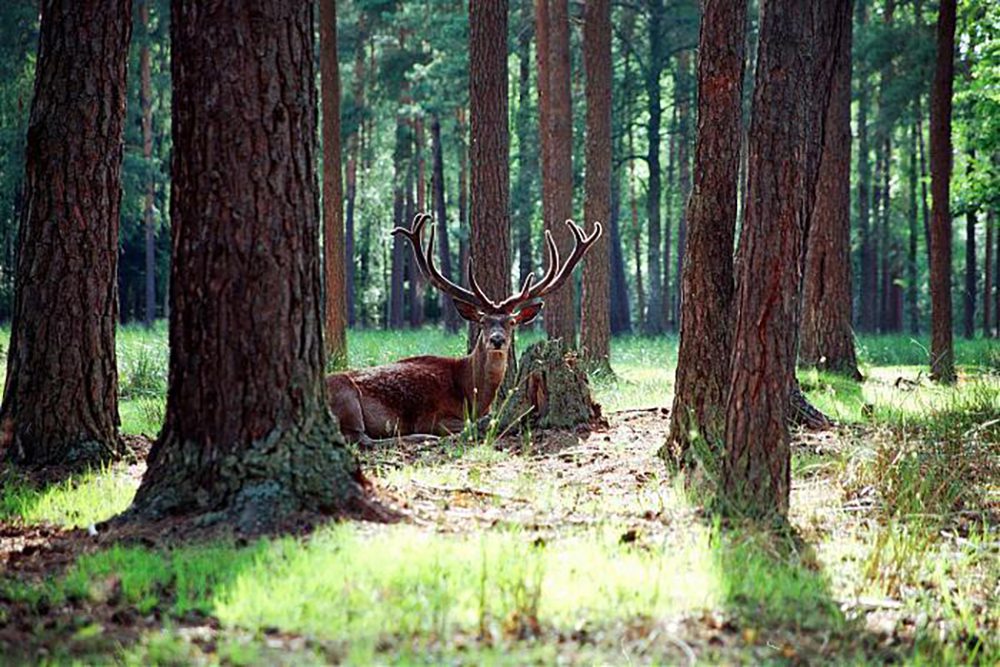There have been many public health measures implemented across the globe to reduce the spread of the coronavirus and ‘flatten the curve’. For instance, there are strict lock downs, people are forced to stay in their homes and therefore, are not commuting to work, or anywhere for that matter. Businesses are shutting their doors and industries are ceasing operations. Aviation is even significantly reduced with strict and extensive travel restrictions domestically and internationally. To the surprise of many experts, these changes are having an interestingly beneficial impact on the environment.
So what is happening to the environment while we isolate ourselves and stay at home?

Amid the devastation of rising death tolls around the world, the tremendous amount of jobs lost and the ongoing affect this will have on the global economy and personal livelihoods, there has been some sparks of light and joy – Animals have the cities and suburbs all to themselves to roam freely, and it’s been a joy to see some of the hilarious, real (and not so real!) videos and photos hitting the internet. From deer taking over pockets of east London, goats re-invading a Welsh seaside, Coyote’s wondering the empty streets of San Francisco, geese and their ducklings waddling about Las Vegas like they own the place and monkeys brawling in Bangkok city area. It’s a sight that is so unusual, however, you can’t argue with nature. It only does what is…natural…of course.
Kimberly Nicholas, a sustainability science researcher at Lund University, stated in dialog with BBC, that transportation makes up 23% of all global carbon emissions. Driving and aviation are the two predominant contributors to greenhouse gas emissions from the transport sector, contributing 72% and 11% respectively.

According to studies at Columbia University,New York traffic levels reduced by 35% compared to the same time last year, resulting in a 50% reduction of emissions of carbon monoxide (a greenhouse gas which predominately comes from cars and trucks) during March 2020 lockdown period. Furthermore, the researchers also discovered a 5-10% decrease of carbon dioxide and methane levels in New York.
Similar outcomes occurred in China, with reports from CarbonBrief that there was a 25% decrease in energy consumption and carbon dioxide (CO2) emissions over a four-week period. To quantify this, that is 200 metric tonnes of CO2! Experts also recorded significant declines in nitrogen dioxide which is associated with decreased traffic and also from the lack of industrial activities.
In Europe, satellite images over northern Italy also showed decreased levels of nitrogen dioxide emissions and this is also beginning to occur in Spain and the United Kingdom due to coronavirus related public health measures.
Although temporary, this means air quality is improving for us humans. According to the Chinese Ministry of Ecology and Environment, the proportion of days of “good air quality” in China went up by 11.4%, compared with the same time last year. Imagine if this were the case all year round.

Such accidental reductions in greenhouse gas emissions are beneficial for the short term, however, policy makers should be looking at long term initiatives. It should be a choice that is made by society to mitigate and lesson the effects of climate change, and not just an indirect effect of actions forced upon us because of a global pandemic.
This raises the debate that, if we can drastically change our behaviours due to a health crisis, then perhaps we can collectively change for a much great public health threat; the climate crisis.Although the effects of climate change are more subtle and long-term threat to our health, it requires as much, if not more sustained efforts from everyone to prevent irreversible damage to this Earth.
So when this all blows over, we can resume to what we considered ‘normal’. However we should not continue to normalise depletion, pollution, exhaustion, greed, extraction or disconnect. We have been given the opportunity to make some of those temporary actions inflicted upon us during the coronavirus outbreak that were coincidentally also good for the climate, become long-lasting habits. Reducing carbon emissions by driving less, buying local and more sustainable products, supporting local businesses instead of from commercial chains, reducing food waste because of shortages from stockpiling, conducting beach clean ups and supporting environmental protection initiatives. Maybe even taking things a little slower in general.
Let’s continue to support and take care of each other and the environment.
Written by Megan Cundy, Oceans 2 Earth Volunteers Marine Conservation Advocate


